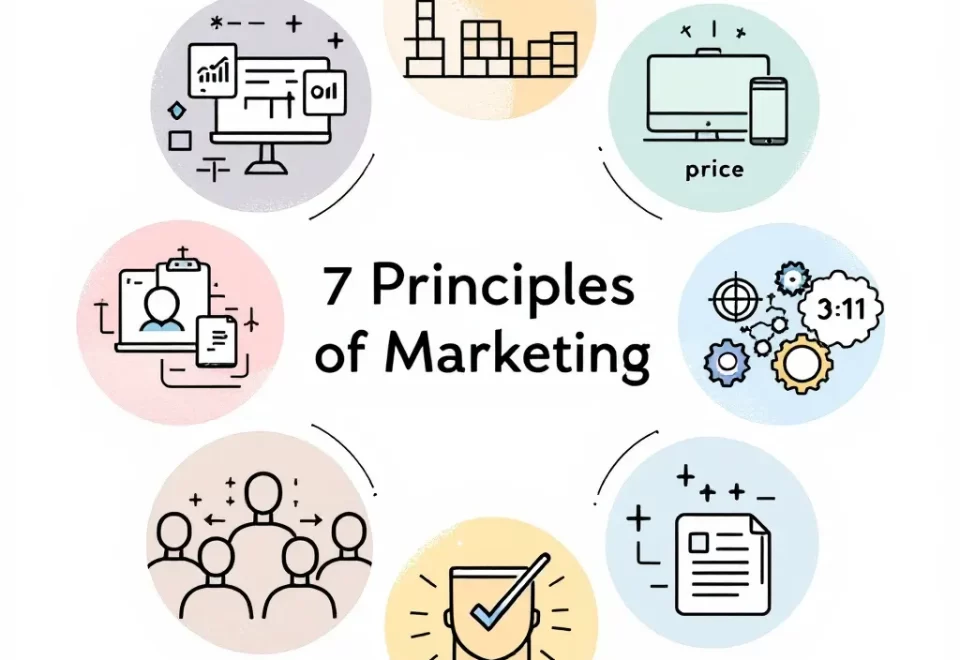Mastering Search Engine Optimization (SEO) is essential for businesses seeking to thrive in the digital landscape. A well-crafted SEO strategy not only boosts a website’s visibility on search engine results but also enhances organic traffic, ultimately translating into increased conversions and revenue.
In this comprehensive blog post, we’ll explore the key steps that the best SEO agencies consistently follow to propel their clients to the forefront of search engine rankings and amplify organic traffic.
What is an SEO Agency?
An SEO agency is a specialized company or firm that provides professional services to help businesses improve their online visibility in search engine results. The primary goal of an SEO agency is to enhance a website’s rankings on search engine results pages (SERPs) for relevant keywords, leading to increased organic (non-paid) traffic and improved online presence.
SEO agencies typically work with a diverse range of clients, including small businesses, large enterprises, e-commerce websites, and organizations in various industries. Their expertise lies in understanding search engine algorithms, staying updated with industry trends, and implementing strategies that align with the best practices of SEO to help their clients achieve their online marketing goals.
SEO professionals strive to avoid pitfalls by steering clear of black hat tactics and emphasizing ethical strategies. They prioritize mobile optimization, user experience, and local SEO, recognizing their impact on search rankings. They communicate transparently, focus on holistic strategies over keyword rankings, and avoid poor-quality link-building. Staying updated with industry trends, they provide measurable results through analytics, avoiding overpromising to ensure client satisfaction and trust.
Why Hire an SEO Agency?
Hiring an SEO agency can bring several benefits to businesses seeking to establish and improve their online presence. Here are key reasons why businesses often choose to hire an SEO agency:
1. Expertise and Experience
SEO agencies typically have a team of professionals with expertise in various aspects of SEO, including keyword research, on-page optimization, link building, and analytics. They often work across diverse industries, allowing them to bring insights and strategies that have proven successful in different contexts.
2. Time and Resource Efficiency
Outsourcing SEO allows businesses to focus on their core operations while experts handle the complexities of search engine optimization. SEO agencies are well-versed in implementing strategies efficiently, leveraging their experience and tools to achieve results in a timely manner.
3. Access to Advanced Tools and Technologies
Agencies have access to premium SEO tools and technologies that may be costly for individual businesses. These tools aid in comprehensive analytics, competitor analysis, and effective strategy development.
4. Strategic Planning and Implementation
SEO agencies develop and implement comprehensive strategies that encompass various aspects, including technical optimization, content creation, and off-page SEO tactics. They tailor strategies to align with business goals, ensuring that SEO efforts contribute to broader marketing and growth objectives.
5. Staying Updated with Industry Trends
SEO is subject to frequent changes in search engine algorithms. Agencies stay updated with industry trends and algorithm updates, ensuring that strategies remain effective and compliant with current standards.
6. Measurable Results and Reporting
SEO agencies understand what type of information can KPIs provide and use analytics tools for reporting, providing clients with insights into the impact of SEO efforts on website traffic, rankings, and conversions. Reputable agencies communicate transparently with clients, offering clear reporting and explanations of results.
7. Risk Mitigation
They are well-versed in ethical practices and guidelines set by search engines. This helps businesses avoid potential penalties resulting from the use of black hat tactics. They can quickly adapt strategies to align with changes in search engine algorithms, reducing the risk of sudden drops in rankings.
8. Local SEO Expertise
For businesses with physical locations, SEO agencies can provide expertise in local SEO, optimizing Google Business Profiles, managing local citations, and enhancing visibility in local searches.
9. Scalability
As businesses grow, SEO needs may evolve. Agencies are equipped to scale strategies to accommodate growth and changing market dynamics.
10. Competitive Advantage
With a strategic and well-executed SEO strategy, businesses can outperform competitors in search engine rankings, gaining a competitive advantage in the online space.
Hiring an SEO agency is an investment in the long-term success of a business’s online presence. With the right agency, businesses can navigate the complexities of SEO, stay competitive in the digital landscape, and achieve sustainable growth.
Ready to boost your organic traffic with one of the top SEO agencies?
Contact Growth Hackers
The Key Steps SEO Agencies Follow for Improving Traffic
1. Thorough Keyword Research
Keyword research is the cornerstone of any effective SEO strategy. The best SEO agencies conduct thorough research to identify the most relevant and high-performing keywords for their clients. This process involves understanding the target audience, analyzing competitors, and using keyword research tools such as Google Keyword Planner, SEMrush, and Ahrefs.
Importance of Thorough Keyword Research:
- User Intent: Understanding the different user intent – informational, commercial, and transactional – behind specific keywords helps in creating content that aligns with what users are searching for.
- Long-Tail Keywords: Identifying and targeting long-tail keywords allows agencies to capture more specific and niche traffic.
- Competitive Analysis: Analyzing competitor keywords helps in discovering opportunities and refining the strategy.
2. On-Page SEO Optimization
On-page SEO focuses on optimizing individual pages to make them search engine-friendly. It involves optimizing elements such as meta titles, meta descriptions, and header tags, and ensuring keyword placement within the content. The best SEO agencies have their own web development team to handle this area.
Elements of On-Page SEO Optimization:
- Meta Tags: Crafting compelling and relevant meta titles and descriptions that encourage clicks from search engine results pages.
- Header Tags: Proper use of header tags (H1, H2, etc.) to structure content and signal the importance of different sections to search engines.
- Keyword Placement: Strategic placement of keywords within the content to signal relevance to search engines.
3. High-Quality Content Creation
SEO content writing should not only target keywords but also provide value to the audience. Content can take various forms, including blog posts, articles, infographics, and videos.
Elements of High-Quality Content Creation:
- Relevance: Content should be relevant to the target audience and address their queries and concerns.
- Engagement: Creating content that encourages user engagement, such as comments, shares, and backlinks.
- Originality: Developing original and unique content establishes authority and helps in standing out in search results.
4. Technical SEO Excellence
Technical SEO involves optimizing the technical aspects of a website to improve its performance and search engine visibility. This includes addressing issues like site speed, mobile responsiveness, crawl errors, and XML sitemaps.
Components of Technical SEO Excellence:
- Site Speed Optimization: Ensuring fast loading times of landing pages for a positive user experience and better search rankings.
- Mobile Responsiveness: Optimizing web design for mobile devices, as well as other screen sizes, considering the increasing number of users accessing the internet via mobile devices.
- Crawl Error Resolution: Identifying and fixing crawl errors to ensure search engine bots can effectively index the website.
- Mobile Page Speed: Optimizing images, using efficient coding practices, and minimizing server response times to enhance page load speed on mobile devices.
5. Strategic Link Building
Link building is the process of acquiring high-quality backlinks from external websites. SEO agencies know how to do link building in the most cost-effective way possible. While quantity matters to some extent, the emphasis is on the quality and relevance of these links.
Strategies for Strategic Link Building:
- Content Outreach: Creating valuable content and reaching out to relevant websites for potential collaborations or link placements.
- Backlink Analysis: Assessing the quality and quantity of backlinks pointing to competitors’ websites for potential opportunities.
- Guest Posting: Writing guest posts for authoritative websites in the industry to earn backlinks.
- Broken Link Building: Identifying broken links on other websites and suggesting your content as a replacement.
6. Data-Driven Analysis with SEO Tools
SEO tools provide insights into website performance, keyword rankings, and competitor analysis. Best SEO agencies rely on these tools to make informed decisions and continually optimize their strategies.
Key SEO Tools and Their Functions:
- Google Analytics: Tracks website traffic, user behavior, and conversion metrics.
- Google Search Console: Provides information about how Google crawls and indexes a website.
- Ahrefs and SEMrush: Offer comprehensive insights into keyword rankings, backlink profiles, and competitor analysis.
7. Local SEO Optimization
For businesses with a physical presence, local SEO is vital. This involves optimizing the online presence for local searches, particularly through Google Business Profiles and Google Maps.
Components of Local SEO Optimization:
- Google Business Profile: Ensuring accurate business information, managing reviews, and optimizing the profile for local searches.
- Local Citations: Ensuring consistent business information across various online directories and platforms.
- Google Maps Optimization: Enhancing visibility on Google Maps for users seeking local products or services.
8. Voice Search Optimization
The rise of voice-activated devices like smart speakers and virtual assistants has changed the way people search. Optimizing for voice search involves understanding natural language queries.
Strategies for VSO:
- Natural Language Content: Crafting content that answers conversational voice search queries and aligns with how people speak.
- Featured Snippets: Structuring content to appear in featured snippets, as these are often read aloud in response to voice queries.
9. User Experience (UX) Optimization
A positive user experience not only improves SEO but also contributes to user satisfaction, engagement, and conversions.
UX Components:
- Site Navigation: Ensuring an intuitive and easily navigable site structure.
- Page Load Speed: Optimizing images, leveraging browser caching, and minimizing redirects for faster loading times.
- Reducing Bounce Rates: Providing valuable content and a clear call-to-action to encourage users to explore the site further.
10. Social Media Integration
While social signals may not directly impact SEO, a strong social media presence contributes to brand visibility, content amplification, and audience engagement.
Strategies for social media:
- Content Sharing: Blogging, promoting articles, and posting other relevant content on social media platforms.
- Audience Engagement: Responding to comments, participating in discussions, and building a community around the brand.
11. Schema Markup
Schema markup provides additional information about the content on a webpage, helping search engines understand context and display rich snippets in the SERPs.
Importance of Schema Markup:
- Implementing Markup: Adding structured data markup to HTML to provide details like ratings, reviews, product information, and more.
- Rich Snippets: Enhancing search results with additional information, such as star ratings, event dates, or product prices.
12. Content Distribution
Creating valuable content is only part of the equation; distributing and promoting that content amplifies its reach and impact.
Strategies for Distributing Content:
- Outreach: Reaching out to influencers, industry leaders, and other websites for potential content partnerships.
- Paid Promotion: Using paid channels like social media advertising or content discovery platforms to increase visibility.
Now is the time to work with one of best SEO companies to skyrocket your traffic!
Criteria for Choosing the Best SEO Agency
Selecting the right SEO agency is a critical decision that can significantly impact your online presence and business success. To ensure you choose the best SEO agency for your needs, consider the following criteria:
1. Experience and Expertise
Look for an agency with a proven track record of successful SEO campaigns. Ask for case studies and references to assess their experience in your industry. Choose one with expertise in your specific niche or industry, as this can contribute to more effective and targeted strategies.
2. Transparent and Ethical Practices
Ensure the agency follows ethical SEO practices (white hat) and avoids shortcuts or black hat tactics that could lead to penalties from search engines. A reputable agency should be transparent about its methodologies, providing clear explanations of the strategies it plans to implement.
3. Customized Strategies
The best SEO agencies develop customized strategies based on the unique needs and goals of each client. Avoid one-size-fits-all solutions.
4. Understanding of Your Business Goals
The agency should understand your business goals and align its SEO efforts with your broader marketing and business objectives.
5. Communication and Reporting
Choose an agency that communicates effectively and understands your communication preferences. Regular updates and clear communication are crucial. They should provide detailed and easy-to-understand reports on key performance indicators, including website traffic, keyword rankings, and conversion metrics.
6. Technical Proficiency
Assess the agency’s proficiency in technical SEO, including site speed optimization, mobile responsiveness, and other technical aspects that influence search rankings. Inquire about the SEO tools and technologies the agency uses to ensure they have access to up-to-date resources.
7. Reviews and Testimonials
Read reviews and testimonials from current or past clients to gain insights into the agency’s performance, client satisfaction, and the impact of their SEO efforts.
8. Local SEO Knowledge
If your business has a local presence, ensure the agency has expertise in local SEO, including Google Business Profile optimization, local citations, and geographically targeted strategies.
9. Content Creation and Marketing
Assess the agency’s approach to content creation. High-quality, relevant content is crucial for SEO success. Inquire about their content marketing tactics, including how they plan to promote and distribute content for maximum impact.
10. Budget and ROI
Understand the agency’s pricing structure and how it aligns with your budget. Consider the value provided in terms of ROI rather than focusing solely on cost.
11. Adaptability and Agility
SEO is dynamic, with frequent algorithm updates. Choose an agency that demonstrates adaptability and agility in adjusting strategies to align with industry changes.
12. Scalability
Ensure the agency can scale its strategies as your business grows, adapting to changing needs and demands.
13. Access to Analytics
The agency should be proficient in analyzing data using tools like Google Analytics, Google Search Console, and other relevant platforms to make data-driven decisions.
14. Contract Terms and Flexibility
Carefully review the terms of the contract, including the duration, termination clauses, and any commitments. Ensure the agency is flexible and willing to accommodate your needs.
By thoroughly evaluating SEO agencies based on these criteria, you can make an informed decision that aligns with your business goals and sets the foundation for a successful and collaborative partnership.
Final Thoughts on the Key Steps the Best SEO Agencies Follow to Improve Organic Traffic
Businesses opt for SEO agencies due to their expertise, time and resource efficiency, access to advanced tools, strategic planning, and commitment to staying updated with industry trends. The success of hiring an SEO agency lies in measurable results, risk mitigation, local SEO expertise, scalability, and gaining a competitive advantage in the online space.
Criteria for selecting an agency include experience, transparent practices, customized strategies, understanding of business goals, effective communication, technical proficiency, and adaptability. By evaluating agencies based on these factors, businesses can make informed decisions for successful and collaborative partnerships.
If you’re looking for an experienced team that checks all the criteria above, then contact Growth Hackers.
Growth Hackers offers top-notch SEO services dedicated to being your growth partner. With a team boasting over a decade of combined expertise in marketing, copywriting, entrepreneurship, design, development, data analysis, and growth strategies, we propel businesses to fast, sustainable, and scalable growth. In an era where competitors tirelessly attract prospects, we help you stand out by crafting compelling messages, infusing our secret sauce, and building a memorable brand that leaves an enduring mark in your industry.
Our approach to SEO is unparalleled. Beyond optimizing for search engines, we integrate growth hacking strategies that resonate with your audience. As your growth partner, we’re committed to not only establishing your brand as an industry leader but also ensuring it stays ahead of trends and competition.
Contact Growth Hackers, and together, we’ll elevate your business higher, faster, and smarter.









